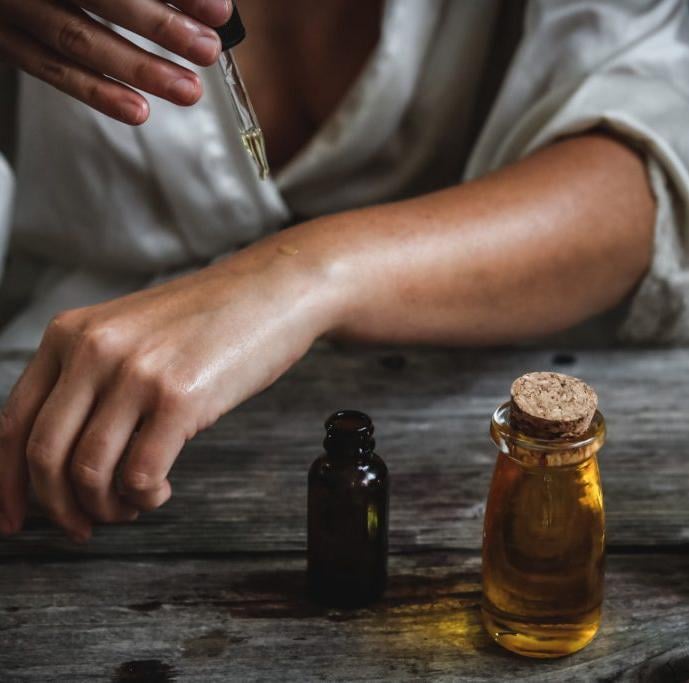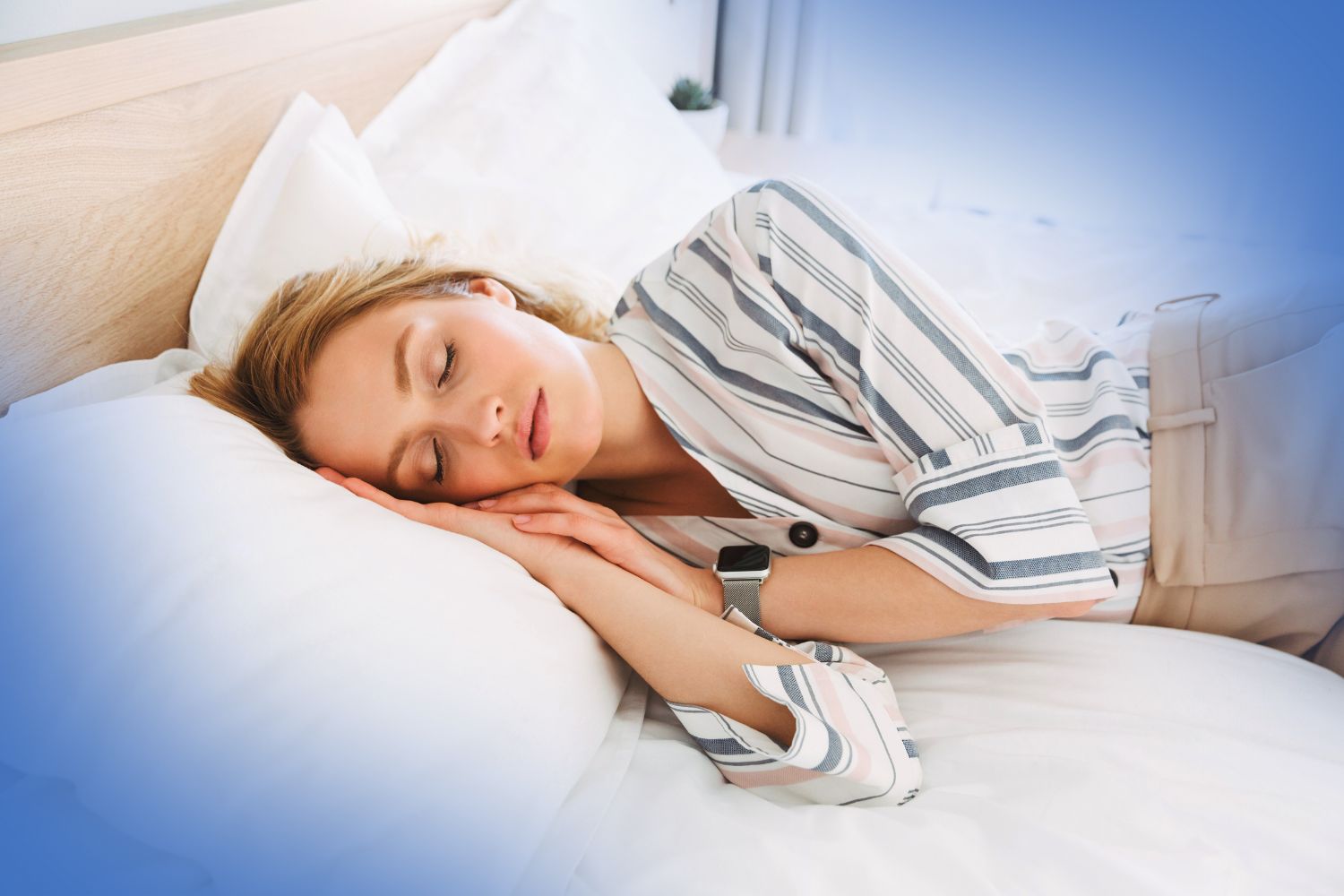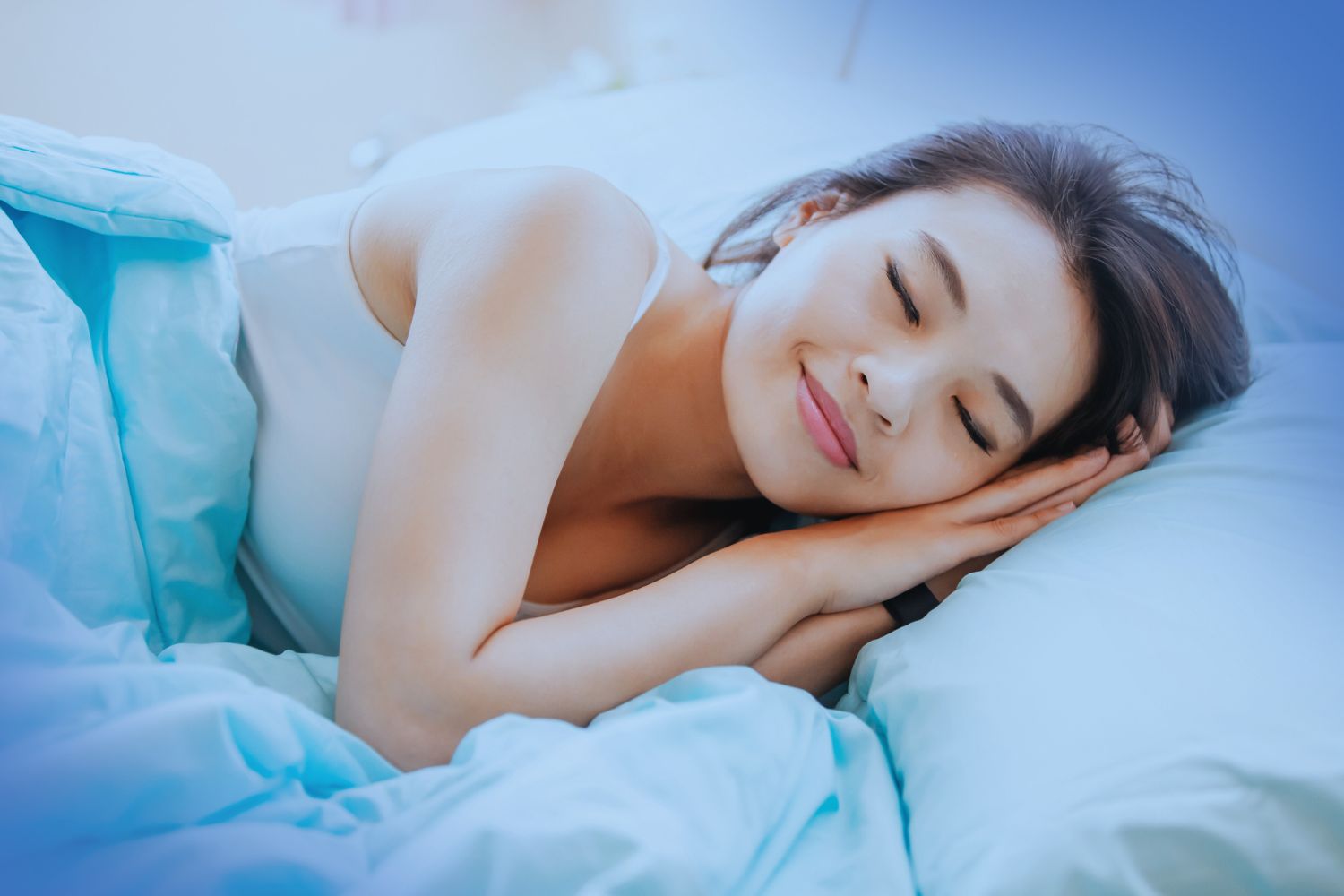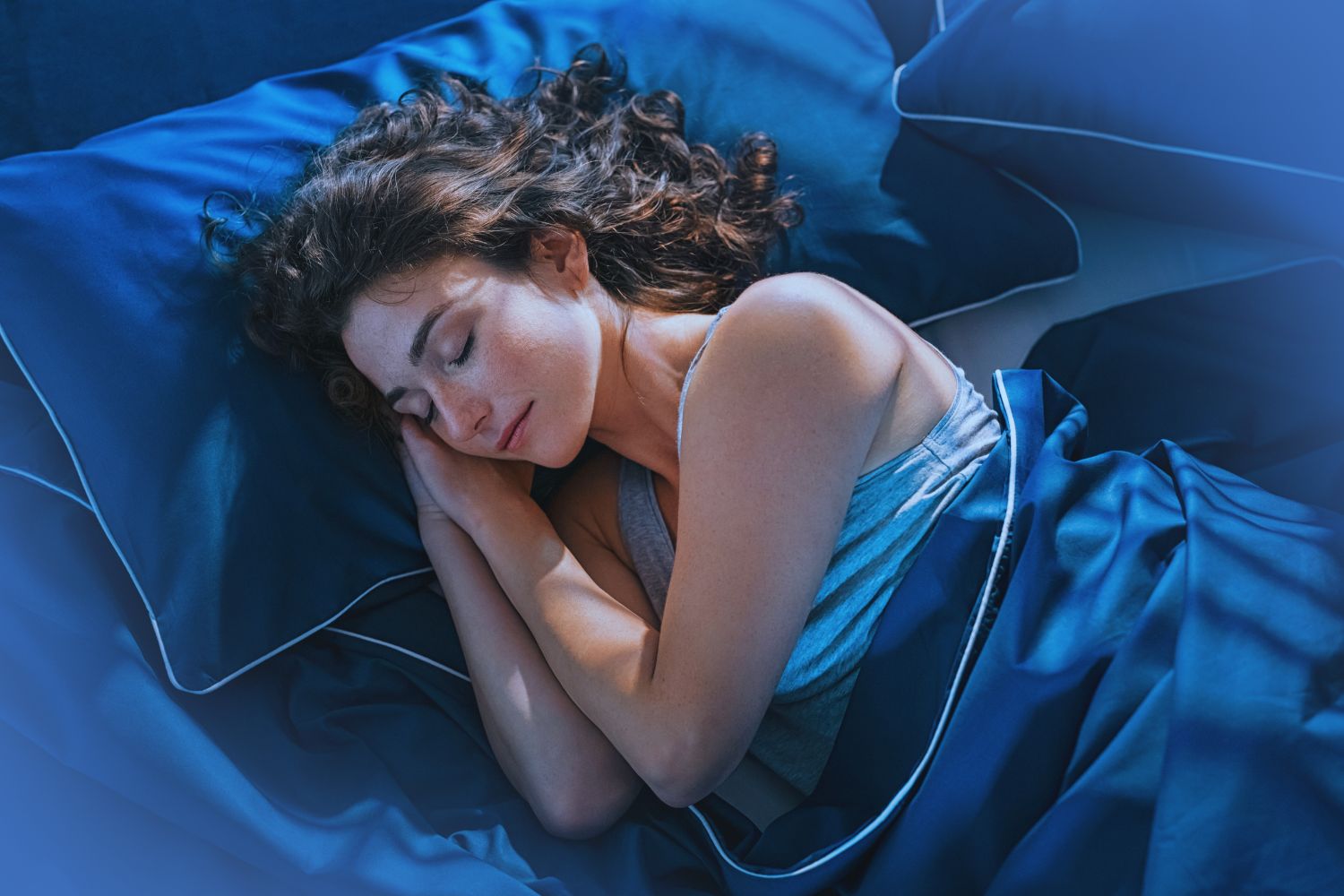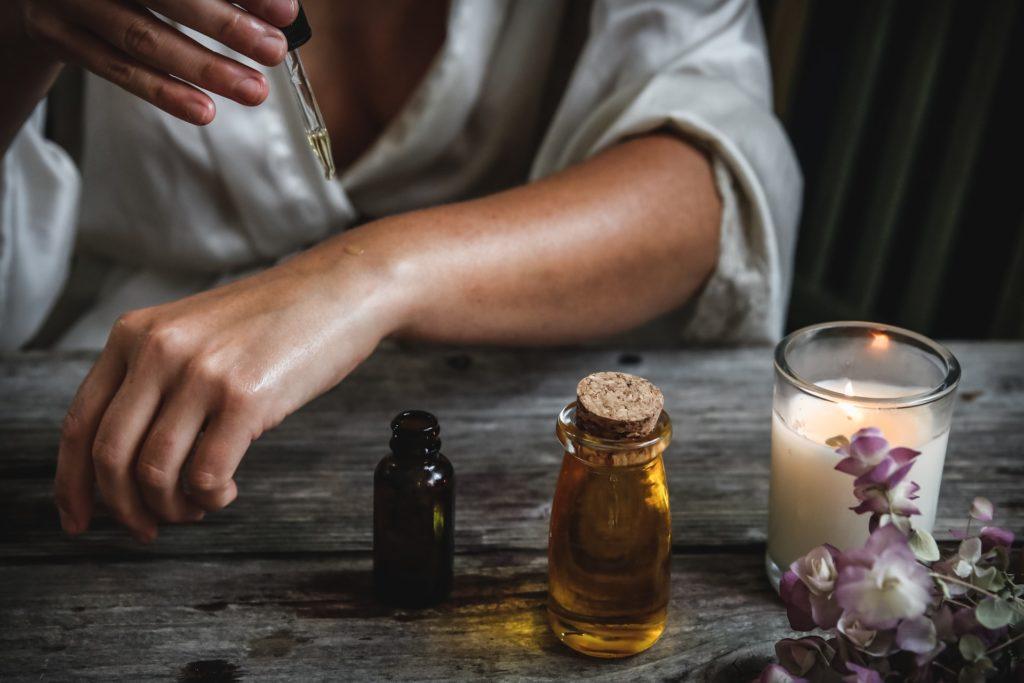
Sleep Scents make Sense
Continuing on from our earlier post, the #1 Way to Relax, we’re examining the sense of smell and how it helps us relax for better sleep. For thousands of years, the use of Aromatherapy has provided a natural and pleasant sensory approach to better health—including deeper, better-quality sleep. Read on to see why sleep scents make sense for better sleep…
Scenting your sleep
I'm going to bet your sense of smell isn’t the first sense that comes to mind when you think about sleep. Am I right? Smell is the first sense we develop, and yet it's all but forgotten when it comes to sleep.
Most folks will cite other senses—the ones that factor in keeping us awake, like: hearing/noise; sight/light, touch/comfort. After all, how often do you hear anyone complain about a smell interfering with their sleep?
Turns out, our relationship to smell can in fact play a role in our quality of sleep—a positive one. This connection is still being studied, but here's what we know so far...
The effects of various fragrances on mood, physiology, and behavior, are due to the fragrance’s ability to interact with--and affect, the central nervous system. This system functions as the body's command center to control your movements, thoughts, and responses to the world around you.
Why Scents make sense for sleep
Making your sleeping environment more conducive to sleep can be as simple as scenting your sleep space.
The role of scent in providing reduced stress levels and psychological comfort should be embraced; not ignored. Specific scents, help you to relax and prepare for better quality sleep. Others help get you going in the morning—and may keep you less stressed during the day. Many believe they also influence dreams, and memory formation during sleep.
Smells produce psychological and physical responses. They become part of your emotional memory—this creates a response to those same scents when you re-encounter them at a later time.
What makes good scents to you?
Does a particular scent relax you? Make it easier for you to go to sleep? There are common denominators among the opinions of the masses when it comes to what makes a a sleep space more inviting. The National Sleep Foundation conducted a Bedroom Poll in 2012 and reported that 78% of people were more excited about going to bed on sheets with a fresh scent. 71% of them said they slept more comfortably on those freshly-scented sheets.
Introducing pleasant, comforting, natural scents in the hours before bedtime may help you get better-quality sleep. We’ll delve into some particular sleep-promoting scents and why they make sense for better sleep. But before we get hung up on whether lavender, or rose, or eucalyptus is a better choice...
Your Partner’s Scent
Here's an interesting find:
"Psychological science"
In a study of 155 participants, each spent two nights with their partner's scent and two nights with a control scent.
What did they conclude? Sleeping with a partner's scent increased sleep efficiency by over 2%
Looks like sensing your partner's scent during sleep, provides approximately the same effect on sleep quality as taking some melatonin. Don’t think anyone’s found a way to bottle that yet, but there are plenty of sleep scents to keep you snoozing when your partner is away from the bed.
A Quick History of Aromatherapy

Early use of Aromatherapy began thousands of years ago with ritual Incense...
The utilization of aromatics derived from plants and their extracts, began over 4,000 years BC. During those times, these aromatics were widely used as incense in religious ceremonies and burial rituals. For some, the scents represented a dedication to prayer and purification. Many also thought they would protect against evil spirits.
The Process
In brief, what we now term Aromatherapy, employs aromatics made from plant scents to enhance different aspects of human health. Its forms are based on the use of essential oils made from the extracted materials from plants; including flowers, and herbs.
Made Scents
These aromatic derivatives were also used as perfume in embalming practices—they were eventually developed into medicinal remedies as well. The earliest known origins of Aromatic practices trace back to Ancient Egypt, the Middle East, and China.
The Egyptians were the forerunners. They mastered the art of steeping plants, flowers, and woods, in oil to make aromatic resins. Egyptian priests, the first "perfumers," used these aromatic resins to sweeten the smell of sacrificial offerings.
Egypt led the world in the creation of perfume and was prominent in the international perfume trade. When Julius Caesar took control of Egypt, he shared his victory with the Roman people by throwing bottles of expensive perfume to the crowds at home.
The Egyptians also used these essences to lavishly scent their homes as it was believed to provide harmony between body and spirit. We can liken this to our modern-day obsession with scented candles.

It's estimated that more than 10,000 "candle" scents are available in the U.S. alone.
Romantic Engineering
Cleopatra famously drenched the sails of her boat with fragrance before setting out to sea; in a bid to seduce Mark Antony. History would say it worked. The bewitching powers of her personal fragrance are the stuff of legend--even prompting Shakespeare to claim the winds were lovesick with it.
Many of the Egyptian scents, including frankincense, myrrh, cinnamon, cardamom, juniper and jasmine are still popular with scent creators today. Love Potion anyone?
Recipe Found: A few years back, researchers cooked up a formula believed to be close to Cleopatra’s intoxicating scent (this was based on 2,000-year-old, thick, sticky, residue from an excavation site.)
Using a base of Myrrha resin, they tossed in some of those ingredients above (you probably have them in your kitchen.) Then, they added in a few more exotic ones, proclaimed it a nice musky, spicy scent; and put in on display at the National Geographic exhibit in D.C.
Preserving Culture
Essential oils are credited with playing a key role in the preservation of Egyptian culture. This is chiefly because their dead were rubbed with cedarwood oil as a preservative during mummification. Interestingly, these oils were used to preserve the ancient papyrus scrolls; and for inscriptions on their clay tablets.
Early Medicine
Hippocrates, known as the father of modern medicine, advocated the usefulness of essential oils to cure certain illnesses. These cures were mainly in the form of incense and hot wraps.
Later, the Roman Empire expanded the use of aromatics for healing applications. It is reported they also used mint leaves to disinfect their hospitals. Today, Mint is acknowledged as extremely effective for use in cleaning and disinfecting health care facilities.
Knowledge continued to spread through the ages via doctors and alchemists. Distillation processes were developed; and refined, which improved the efficacy of the essential oils.
The implementation of aromatics for the treatment of physical and mental illnesses thus continued to grow…
In the early 1500’s, the renowned European doctor Paracelsus diligently studied the effects of essential oils and began incorporating these essences into his own medicinal remedies.
Modern Medicine
During a chemical experiment, French chemist and perfumer Rene-Maurice Gattefosse’, had a lab accident and burned his arm. Fortunately, he plunged it into the nearest liquid--a barrel of lavender oil; and was amazed to find the pain rapidly dissipated. Even better, the burns quickly healed—and the accident left no scars.
And so began his dedication to the study and promotion of natural oils for therapeutic and medicinal use. He founded the French Society of Aromatic Products and went on to publish numerous reference works including his 1939 book “Aromatherapy” which is still consulted today.
Aromatherapies are gaining in popularity around the world. Research continues to be positive, and these alternative therapies are now more accessible to the general public.
Aromatics today
Currently, the most common uses for aromatherapy are in promoting relaxation and relieving stress. That said it is also used widely to treat a range of physical and mental afflictions including burns, infections, high blood pressure, respiratory ailments, pain, depression, anxiety and notably, insomnia.
Can Aromatherapy really provide better sleep?
Through the power of your sense of smell, a number of essential oil scents may help you get better sleep. Because these scents promote relaxation, you can fall asleep more easily. They'll also help you sleep longer and more efficiently so you wake up refreshed.
Exposure to scents associated with positive emotions are known to benefit sleep. This holds true when experienced during the lead-up to lights out; as well as throughout your sleep cycle.
Studies show olfactory stimulation of fragrance produces immediate changes in physiological parameters such as blood pressure, muscle tension, pulse rate and brain activity. These can all impact sleep.
Other research has shown sleep benefits, in people utilizing drops of essential oils to address insomnia and other sleep disorders. Studies have also noted improved sleep quality in subjects with PTSD who often suffer from nightmares and generally poor sleep.
How does your nose sense scent?
Using special cells called olfactory neurons, the nose receives chemical signals from environmental compounds. These neurons are directly connected to the brain and allow it to quickly identify smells based on which neurons are stimulated.
Nose Flash: Your scent cells renew themselves every 28 days—providing you with a “new nose.” But how does your nose process scent for better sleep?
Nose, meet Sleep scent
Essential oils impact your olfactory system by connecting with your “emotional brain.” The sleep-promoting scents cause the brain to secrete neurotransmitters such as dopamine and serotonin—this can make you feel calm and relaxed. Serotonin also causes you to feel sleepy, so you know when it’s time for bed.
Which Sleep Scents work best—and why?
Lavender:
This scent is among the most popular of the Aromatherapy essential oils. It is widely known to help with better sleep; partly due to its Anti-inflammatory, and Pain-relief properties. Lavender also calms anxiety by relaxing the body and easing the mind. It is known to help you fall asleep and to get more quality time in deep, slow-wave sleep.

Lavender is mainly employed in aromatherapy treatments including inhalation, aromatherapy massage, dripping oil and bathing.
Commercial options for lavender sleep products include: scented pillows, candles, diffusers, bath products and lotions.
Here's how these additionalSleep Scents work…
- Bergamot: Can lower heart rate and blood pressure. It reduces anxiety and stress, so you are able to fall asleep.
- Cedar Extract: Has been shown to help one fall asleep more quickly when taking a daytime nap.
- Chamomile: Is known for calming effects and reducing stress. It is not restricted to application of the essential oil; the flowers can be brewed for a relaxing hot tea.
- Clary Sage: Is a natural sedative that can reduce levels of the stress hormone, cortisol.
- Eucalyptus. This oil can help to clear sinuses and airways. It is known to break up mucus which can help you to breathe easier so you can sleep better.
- Frankincense: Promotes relaxation to help you get a good night sleep.
- Jasmine: Is known to reduce restlessness and improve sleep quality.
- Peppermint: Has Anti-inflammatory properties. It can help to clear your nose and airways; to reduce snoring, and can reduce symptoms of mild sleep apnea.
- Rose: Is a naturally relaxing stress reducer. Research suggests this scent can also help you learn while sleeping.
- Sandalwood: Helps with relaxation, and calms anxiety. It's also known to have sedative effects.
- Sweet Marjoram: Has a variety of uses but is also known to help with insomnia. Is stronger than Lavender and Camomile and often used for its sleep inducing effects.
- Valerian: Is known to reduce anxiety, which can help you to fall asleep, and stay asleep longer.
- Ylang Ylang: Has known sedative properties which provide calming anxiety relief.
How to use Aromatherapy for sleep
Used separately, or combined to create a personalized blend, these essential oils can help to promote better quality sleep. They should not however, be used as a replacement for any treatment that has been prescribed by your doctor. Always talk with your health advisor before beginning any new treatments on your own.
Using sleep scents for better sleep may be done in three ways:
- Inhaling – this is the most common—and easiest, way to use Aromatherapy
- Applying to the skin—this method requires diluting via a carrier oil—and then testing for skin compatibility
- Ingesting—this method is not recommended for use without professional medical guidance
It’s ok to Inhale
The Inhalation method is usually done with a diffuser: After placing a few drops of the oil into the diffuser, the oil molecules will be dispersed through the air. You simply breathe them in and enjoy the benefits.
What about side effects?
Few or no side effects are reported from inhalation aromatherapy, and essential oils are generally considered safe when used as directed.
Important Notes:
- You should only diffuse in a well-ventilated space. Note: Your space is not well-ventilated if all you can smell is the essential oil. Poor ventilation can create a risk of irritating your respiratory system.
- Ventilation is especially important if you have pets — and this includes leaving doors open for pets to remove themselves.
- Some individuals may experience allergic reactions from certain essential oils, especially when they are applied to the skin.
- Citrus-based, as well as some other types of essential oils, can increase the skin’s sensitivity to the sun and ultraviolet rays.
- Skin patch-tests are a good idea—it’s also important to choose a good-quality; "trusted" essential oil brand.
Is Aromatherapy right for you?
Consider exploring this pleasant, calming, method of relaxation if you’re having trouble falling asleep—or getting good quality sleep. You may already be convinced that sleep scents make sense for better sleep. However, it's best to always take some time to do your own research before beginning any new health practices:
- Sample different scents that provide similar benefits to see which ones agree with your own personal scent preferences—and that also align with your sleep issues. That way you get something that works—and smells nice to you as well.
- Remember to keep your doctor in the loop—especially if you’re under any form of treatment.
- Have fun exploring your scent sense! You might want to start with this Free Guide to Blending Essential Oils
Boost your ability to relax and fall asleep with the soothing tones of pink noise.
SoundOff sleep earbuds don't just block out noise—our proprietary pink noise relaxes your brain so you can fall asleep faster, and get deeper, longer lasting sleep.
Try SoundOff risk-free for 30-daysand start getting your best sleep ever—you'll love what you can't hear!

Check back soon for the next installment in the How to Relax for Better Sleep series. Until then…

